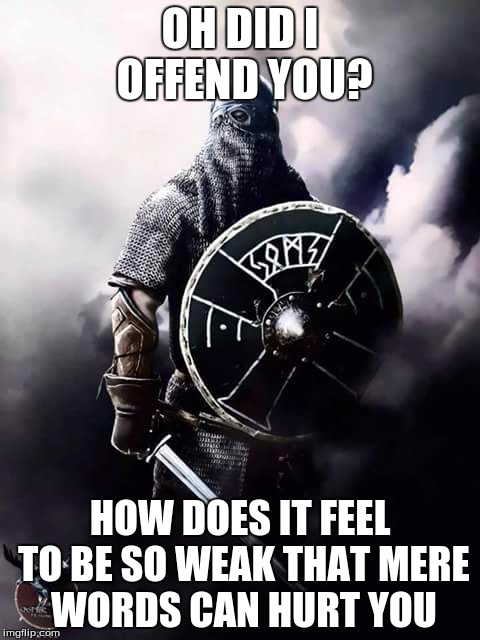Them's Flyting Words: On Norsemen and Poetry Slams
Say what you want about the ancient Norse- as bad a rap as the media has given them, they have certainly made their marks on western culture, for better or worse.
For all the media has done to portray the ancient Norse as uncivilized raiders and looters, they actually had an incredibly complex societal structure and language. Not only were they literate, they were actually quite heavily reliant on the power of the spoken (and later written) word. In fact, much of what we know about the Norse's beliefs come from epic poems, passed down hundreds of years by word of mouth before being committed to writing.
Because of this and other beliefs (which I could go on about,) the Norse held regarding the power of words, maybe it shouldn't come as a surprise that Norse warriors engaged in battles of poetic wit just as often as they engaged in contests of physical prowess.
Yes. Once more for the people in the back: The vikings were, if not the first, then among the first to engage in poetry slams.
This ritual exchange of escalating insults, called "flyting" was actually a common pastime all across Europe, particularly between the 5th and 16th centuries. To the Norse in particular, not only was it a major form of entertainment (after all,who doesn't enjoy a good "Thine mother" joke?) it was also used in place of a more physical duel to settle quarrels and disputes.
This video, despite referencing the ancient Celts (and ending in bloodshed,) is a pretty fair representation of how a flyte would have gone down Participants would exchange increasingly vulgar (yet poetic) taunts, ranging from the scatological to judgments on everything from a man's moral fiber to his choice of bed partner (be his interests incestuous, bestial, or otherwise unmanly.)
The winner was judged by whose insults got a bigger reaction from the audience. The victor would then down a mead in victory,and invite the loser to sit for a drink. Pretty civil, right? Especially considering the heavy penalties often paid for insult and slander outside such events...like death. Or heavy fines, but death is worse.

Many cultures have had customs similar to flyting, from the Inuits to the Japanese. Even Shakespeare got in on the action, using ritualized insult in upwards of thirteen of his works.
The Norse gods themselves were not immune. In the epic poem Lokasenna, Loki returns after being chased away for killing a favored servant (just to get attention) and begins insulting the gods present (like a fool.) He continues on, even calling Odin a drag queen and a sorcerer before Thor arrives and threatens his bodily well-being. Only then does Loki shut up and run. The gods then chase him down and lock him away, surprising exactly no one.
A good modern analogy for flyting is to compare it to a rap battle or poetry slam, which only makes the Lokasenna even more amusing to read. Flyting lives on in these, as well as in the insult-based verbal-combat games that are its spiritual successors.
The language and culture of the old Norse is absolutely fascinating, and an absolute linguistic/cultural goldmine. Let me know if I should look at some of the other ways in which the Vikings demonstrated their belief in the power of word; I might make this a short series.

Love the historical relevance of this topic and your sense of humor in discussing it in this post.
ReplyDelete